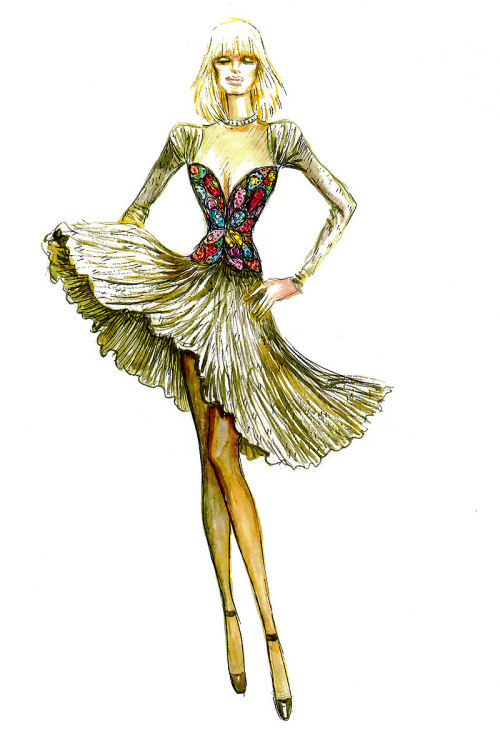“rework Of A Magazine Page From The 2000s To Fit Today’s Artists” By @wakeupzuzi On Instagram


“rework of a magazine page from the 2000s to fit today’s artists” by @wakeupzuzi on instagram
More Posts from Areyoueventhere and Others










January bestsellers at Skylight Books!
And when you told me what your favorite book was, I bought it and read it over and over trying to find pieces of you in it.
- unknown

via Gridllr.com — grid view for your Likes!

The Neighbourhood- High All The Time
(Tap for better quality)
via Gridllr.com — find those forgotten Likes!
reminder:
it’s okay to have days where you don’t study at all if you need a mental and/or physical break.
it’s okay to prioritize other things in your life over school, if they’re more important to you and benefit you moreso.
it’s okay to fail a test or get a bad grade or get on the bad side of a teacher; your academic career will never go perfectly, but that doesn’t mean it’s spoiled forever, and that you will go nowhere.
it’s okay to not be accepted into programs, classes, clubs, or anything of the sort. just keep going forward, and new & better things will come along.
failure! is! okay!
breaks! are! okay!
you! are! okay!
via Gridllr.com — take back control of your Likes!
They Put a Flag on the Moon

It’s 1969 and Apollo 11 astronauts Buzz Aldrin and Neil Armstrong are the first humans to land on the Moon. In now iconic footage, Aldrin and Armstrong carefully assemble and maneuver an American flag to place on the lunar surface. The fabric unfurls, staying suspended without any wind to animate the stars and stripes. The flagpole sways precariously as the crew work to anchor it in the Moon’s low gravity at just 1/6th that of Earth’s. How did this moment come about? On Flag Day, let’s dive behind-the-scenes of what led to getting the American flag on the Moon 50 years ago.

Image: Astronaut Buzz Aldrin poses for a photograph beside the deployed United States flag during the Apollo 11 mission.
Seeking to empower the nation, President John F. Kennedy gave us a grand charge. The human spaceflight program of the early 1960s was challenged to work on missions that sent humans to the surface of another world. Following President Kennedy’s death in 1963, President Richard Nixon stressed a more international perspective to the Apollo missions. To reconcile the need for global diplomacy with national interests, we appointed the Committee on Symbolic Activities for the First Lunar Landing.

Image: NASA Administrator Thomas Paine and President Richard Nixon are seen aboard the USS Hornet, Apollo 11’s splashdown recovery vessel.
The committee, and the U.S. at large, wanted to avoid violating the United Nations Outer Space Treaty, which prohibited any nation from taking possession of a celestial body. After some debate, they recommended that the flag only appear during the Apollo 11 spacewalk. A plaque would accompany it, explaining that the flag was meant to stand for peaceful exploration, not conquest.

Image: The plaque reads “Here men from the planet Earth first set foot upon the Moon July 1969 A.D. We came in peace for all of mankind.” Under the text are signatures by President Nixon, Buzz Aldrin, Neil Armstrong, and Michael Collins.
A team of engineers at Johnson Space Center had three months to resolve several issues regarding the flag’s assembly. First, was the Moon’s lack of atmosphere. The flag, quite literally, could not fly the way it does on Earth. To address this, a horizontal crossbar was added to support the flag’s weight and give the illusion of it waving.

Image: NASA technician David L. McCraw shows the flag next to a Lunar Module mockup.
Second was the flag’s assembly, which had to be as lightweight and compact as possible so as not to take up limited storage space. The completed package, which was attached to Lunar Module’s ladder, weighed just under ten pounds. It received an outer case made of steel, aluminum, and Thermoflex insulation and blanketing to shield the flag from the 2,000 degree Fahrenheit spike from the Eagle’s descent engine.

Image: Component pieces of the flag assembly.
The last issue was mobility. Bulky spacesuits significantly restricted the astronauts’ range of motion, and suit pressurization limited how much force they could apply. To accommodate these limits, the team included telescoping components to minimize the need to reach and maneuver the poles. A red painted ring on the flagpole indicated how far into the ground it should be driven. Hinges and catches would lock into place once the pieces were fully extended.

Image: Diagram from the 1969 Apollo 11 press release illustrating astronaut spacesuit reach capabilities and ideal working height.
Fifty years after Apollo 11, the flag we planted on the lunar surface has likely faded but its presence looms large in United States history as a symbol of American progress and innovation.

Image: A close-up view of the U.S. flag deployed on the Moon at the Taurus-by the crew of Apollo 17, the most recent lunar landing mission.
The story doesn’t stop here. Anne Platoff’s article “Where No Flag Has Gone Before” sheds more light on the context and technical process of putting the United States flag on the Moon. You can also check out Johnson Space Center’s recent feature story that details its presence in later missions. Happy Flag Day! Make sure to follow us on Tumblr for your regular dose of space: http://nasa.tumblr.com.
via Gridllr.com — easy reblogging from your Likes!



Raffaella Carrà Butterfly Dress by Luca Sabatelli for Fantastico, 1982 Rose su rose by Michael Bailey Gates, Vogue Italia, October 2018

I just want you all to know this is coming.

Here are some of my favourite under-appreciated shots from the Japanese Booklet.
It’s so beautiful, guys! I love the format (it’s actually quite big).
Also, it seems the order of the shoot wasn’t as chronological as they made us believe, so I have even more appreciation for Timmy’s and Armie’s acting craft, seriously.
And Armie was on the set even when he wasn’t in the scene (Elio and Marzia friends forever scene on the piazza).
I absolutely love Amira:

Le Dancing:


Just a heads-up for all the armpit kinkers ( @shes-gone-rogue @shellgoes211 @holdmygazeoliver ):



I feel this one is not enough talked about, honestly:

-
 leoshawty liked this · 1 month ago
leoshawty liked this · 1 month ago -
 jordyghavine reblogged this · 1 month ago
jordyghavine reblogged this · 1 month ago -
 tk2the liked this · 1 month ago
tk2the liked this · 1 month ago -
 txoworldx liked this · 1 month ago
txoworldx liked this · 1 month ago -
 cocodrilloturbo liked this · 2 months ago
cocodrilloturbo liked this · 2 months ago -
 multapohja966 reblogged this · 3 months ago
multapohja966 reblogged this · 3 months ago -
 ayosubzero reblogged this · 3 months ago
ayosubzero reblogged this · 3 months ago -
 ayosubzero liked this · 3 months ago
ayosubzero liked this · 3 months ago -
 therobmilton reblogged this · 3 months ago
therobmilton reblogged this · 3 months ago -
 blackmon19 reblogged this · 4 months ago
blackmon19 reblogged this · 4 months ago -
 nuclearskyscrapers reblogged this · 4 months ago
nuclearskyscrapers reblogged this · 4 months ago -
 nuclearskyscrapers liked this · 4 months ago
nuclearskyscrapers liked this · 4 months ago -
 fuqawf reblogged this · 4 months ago
fuqawf reblogged this · 4 months ago -
 hulovesit liked this · 5 months ago
hulovesit liked this · 5 months ago -
 r-unawaygoddess reblogged this · 6 months ago
r-unawaygoddess reblogged this · 6 months ago -
 r-unawaygoddess liked this · 6 months ago
r-unawaygoddess liked this · 6 months ago -
 111-444-222 liked this · 6 months ago
111-444-222 liked this · 6 months ago -
 annita890dzmzfmh liked this · 6 months ago
annita890dzmzfmh liked this · 6 months ago -
 munixf liked this · 8 months ago
munixf liked this · 8 months ago -
 callme-pooh liked this · 8 months ago
callme-pooh liked this · 8 months ago -
 gladiss liked this · 8 months ago
gladiss liked this · 8 months ago -
 amut liked this · 9 months ago
amut liked this · 9 months ago -
 chvmberofsecretz reblogged this · 9 months ago
chvmberofsecretz reblogged this · 9 months ago -
 danashafiee reblogged this · 10 months ago
danashafiee reblogged this · 10 months ago -
 keiory24 liked this · 10 months ago
keiory24 liked this · 10 months ago -
 tayglo4k liked this · 10 months ago
tayglo4k liked this · 10 months ago -
 strawberry-fruitopia liked this · 11 months ago
strawberry-fruitopia liked this · 11 months ago -
 blissfulandignorant liked this · 11 months ago
blissfulandignorant liked this · 11 months ago -
 ascorpiosrevenge liked this · 11 months ago
ascorpiosrevenge liked this · 11 months ago -
 byeproxy liked this · 11 months ago
byeproxy liked this · 11 months ago -
 goodlucksnko reblogged this · 11 months ago
goodlucksnko reblogged this · 11 months ago -
 goodlucksnko liked this · 11 months ago
goodlucksnko liked this · 11 months ago -
 thexoelove reblogged this · 11 months ago
thexoelove reblogged this · 11 months ago -
 itsthegovt reblogged this · 11 months ago
itsthegovt reblogged this · 11 months ago -
 dolly-gyal liked this · 11 months ago
dolly-gyal liked this · 11 months ago -
 cumpleted liked this · 11 months ago
cumpleted liked this · 11 months ago -
 lolataughtme reblogged this · 11 months ago
lolataughtme reblogged this · 11 months ago -
 shrinkwrappedmeat reblogged this · 11 months ago
shrinkwrappedmeat reblogged this · 11 months ago -
 hachitamaa liked this · 11 months ago
hachitamaa liked this · 11 months ago -
 naras-oul liked this · 11 months ago
naras-oul liked this · 11 months ago -
 viibin reblogged this · 11 months ago
viibin reblogged this · 11 months ago -
 squozeem liked this · 11 months ago
squozeem liked this · 11 months ago -
 thexoelove liked this · 11 months ago
thexoelove liked this · 11 months ago -
 senpaisbootycall liked this · 11 months ago
senpaisbootycall liked this · 11 months ago








